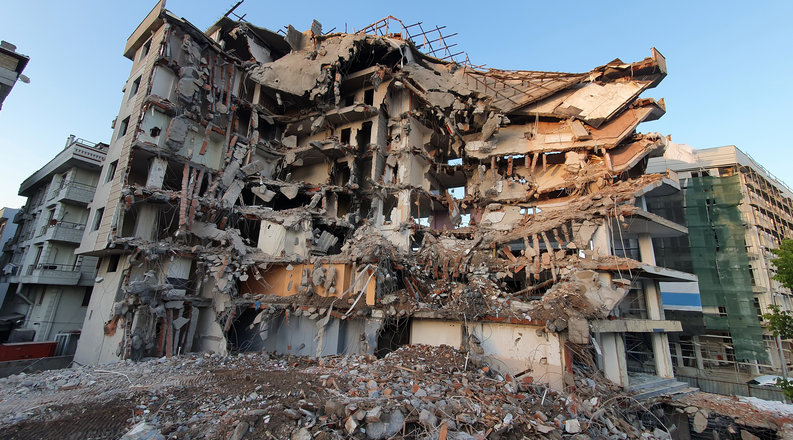By Jonah Grinkewitz
Amid grief and shock, the Turkish community at Old Dominion University is organizing support for its home country after devastating earthquakes on Feb. 6 left close to 45,000 people dead in Turkey and neighboring Syria. Two weeks later, a magnitude 6.3 aftershock near the coast triggered a tsunami warning and further panic.
Ece Turkoglu, a senior on ODU’s women’s soccer team, rallied her teammates to gather winter clothes to send through the Turkish Embassy as displaced men, women and children face bitter conditions.
The Islamic Center of Tidewater, located on ODU’s campus, collected clothes, blankets, sleeping bags, medications, hygiene products, baby formula and diapers through Feb. 19.
ODU’s Engineering Technology Department has many faculty members from Turkey. They recommended donating to Ahbap and AFAD, two transparent and reputable organizations involved in relief efforts.
“No donation is too small right now,” Gokcen Ozdemir, a postdoctoral researcher visiting the University, wrote in an email to her colleagues. “Anything you can give is so important for the people in the disaster area.”
Murat Kuzlu, an associate professor in the department, said he appreciates the solidarity from the larger ODU community.
“Colleagues (with no ties to Turkey) sharing our sadness … it has motivated me to help my family,” he said.
Kuzlu was terrified when he heard the news about the earthquake. His sister, her husband and their two children live in Hatay, the southernmost province of Turkey, close to where the earthquake struck. They made it safely to his parents’ home in Zonguldak in the northwestern part of the country.
“I called my father and he said they were OK, but there was damage to their home,” Kuzlu said.
Mecit Cetin, director of the Transportation Research Center at ODU, said his family in Istanbul is safe, but he has friends who lost loved ones.
“We are heartbroken,” he said.
Cetin said he had planned to take his kids to visit his hometown of Diyarbakir this summer. He hadn’t been back in more than 15 years, but now it will never be the same after the earthquake destroyed parts of the city.
Oktay Baysal, a professor and Eminent Scholar at the University who is from Istanbul, pointed to the extreme logistical difficulties for the hundreds of thousands of survivors whose homes were either destroyed or too dangerous to go back to. He started a relief fund through Turkish Philanthropy Funds that has raised more than $26,000.
Baysal remembers the last major earthquake that happened in the northwestern part of Turkey in 1999 and how the ODU community came together. He said universities across the country are hosting coordinated vigils on March 5 and hopes ODU will participate.
Ozdemir, who will possibly be at ODU for another two years, said she has had many sleepless nights reading stories and watching videos about the disaster.
“I feel bad because I have only been here five months, but my heart is with them at home,” she said.
Mujde Erten-Unal, associate professor of civil and environmental engineering, and her husband, Resit Unal, professor of engineering management and systems engineering, grew up in Turkey’s capital city of Ankara, which is less prone to earthquakes. They have also donated supplies to the Turkish Embassy and made monetary donations to the Bridge to Turkiye Fund.
“We are so touched and grateful to all the international community who came together to help and support the victims,” Erten-Unal wrote in an email. “Aid is coming from everywhere, and this tells us that there are still a lot of good people in this world.”



